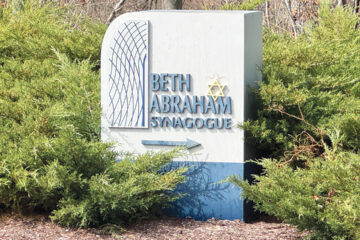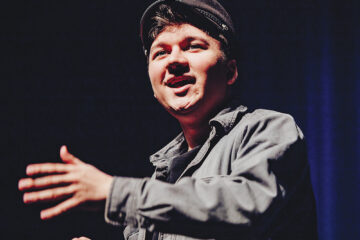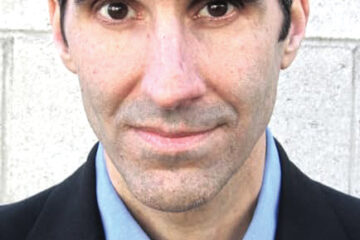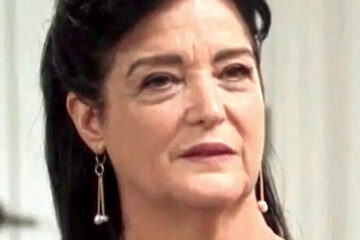Two years after Oct. 7, Dayton Jewish leaders stress civility, learning, dialogue
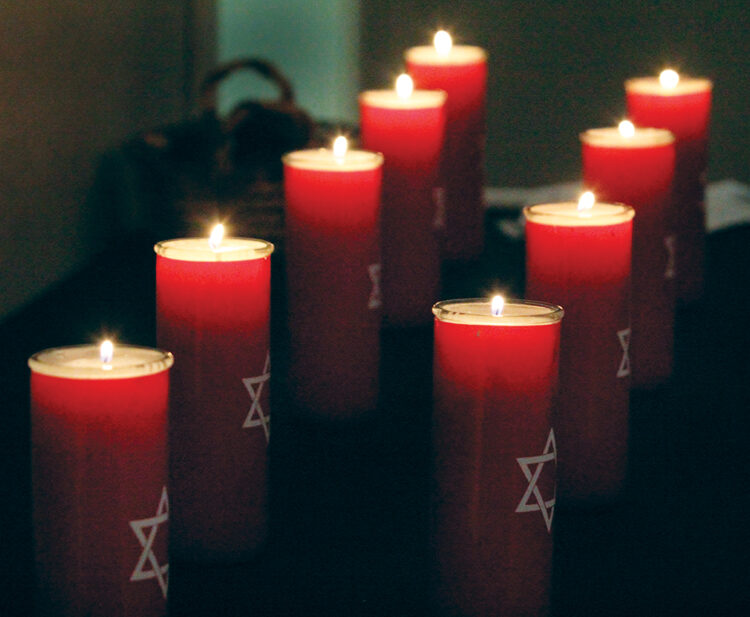
By Marshall Weiss, The Dayton Jewish Observer
“On Oct. 7 and 8, 2023, there was a uniform feeling in our Jewish community of outrage and compassion, caring and concern for the people of Israel and the State of Israel,” says Jewish Federation of Greater Dayton CEO Cathy Gardner.
What started to emerge in the Jewish community on Oct. 9 was what Gardner calls “micro opinions” on questions of: Why did this happen? How could it have happened? Why at this magnitude? What about what’s happening with the Palestinians?
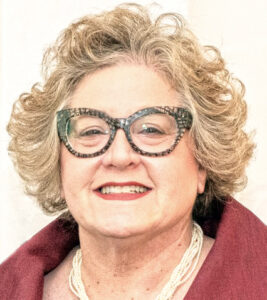
“As a Jewish Federation, we stand with Israel, with the right for Israel to exist and to defend itself, and that is full stop,” Gardner says. “Beyond that, it’s not black and white when it comes to Israel. There are so many opinions on this continuum. We hear so many comments in relation to our Israel programs and activities along that continuum, including from those who only see Israel in absolute terms.”
Israelis and their government are at odds over which priority outweighs the other: to broker a deal with Hamas (which would keep Hamas leadership in place for now) and bring the remaining hostages home, or to fully destroy Hamas — if that’s possible — even at the cost of the hostages.
Along with Israelis, Jews in America are at odds over the justifiability of the cost in lives and suffering to the people of Gaza — human shields for Hamas terrorists.
“These are very strong emotions about what’s happening, and they’re deep, deep emotions,” Gardner says.
“And the continuum of micro opinions goes from A to double Z. That’s how many spots there are on the continuum.”
Some in the Dayton area’s Jewish community are not immune to making their opinions known stridently on social media, lobbing personal attacks on those who disagree with them.
But the rabbis The Observer spoke with said the wrenching divisions among American Jews related to the Israel-Hamas war have not spilled over into their worship services, classes, and programs.
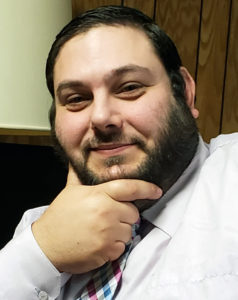
“I’m sure there are people that are more pro-Israel and less pro-Israel, but I haven’t heard anything directly,” Rabbi Leibel Agar of Beth Jacob Congregation says of his congregants.
“For the years that I’ve been here, something I’ve noticed about the community is we are united. It’s not separate enclaves or pockets. We have a united front when it comes to major issues. There will always be people who say you can do more or you’re doing too much. Regardless of our personal politics, we can put it a little bit aside and say this is something we can all stand behind.”
Chabad of Greater Dayton’s Rabbi Nochum Mangel says he doesn’t see contention at Chabad over the Israel-Hamas war either.
“That doesn’t mean there isn’t discussion, and it doesn’t mean there’s no questions,” he adds. “But there’s definitely extreme support for our brothers and sisters living in the land of Israel.”
‘What does Torah say?’
A rabbi’s function, Mangel says, is to answer questions from a Torah perspective. “We have a 3,500-year history that sadly, we’ve had to deal with many of these issues, and they were addressed. We all have our own personal feelings. We all see things and interpret things in different ways. But as Jews, the ultimate arbitrator is the Torah and is God. And then, what does Torah say about these issues? And when there are two sides to an issue, two different opinions, that has to be discussed as well.”
The serious questions regarding Israel, Mangel says, include choosing one life over another, and short-term versus long-term objectives.
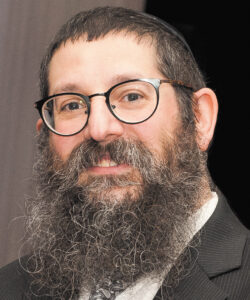
“Instead of animosity —where people are absolutely sure that they know the answer and demonize the other side — we hope to create an environment where there can be a healthy discussion and learning from the text or from history. Hopefully, that can give us some insights or some clarity, or at least concern or prayer for those who have to make the decisions and those who have to implement them.”
In one of Chabad’s Jewish Leadership Institute classes, Mangel says, the Jewish value of redemption of captives became a point of discussion based on an article Temple Beth Or’s Rabbi Judy Chessin wrote on the topic for The Observer (February 2025).
“We have people on every side of the equation, and I think people tend to group themselves in their own opinion groups anyway, kind of naturally,” Chessin says of her congregants. “I don’t see any big divisions or, ‘I’ll never go back there’ kinds of feelings.
“Social media and the mood of the time — which really develops divisiveness and almost celebrates it and creates it — makes it look terrible. But I think one of the things Judaism does really well is it allows for debate, and strong and verbal debate, as long as it’s done in a healthy way that doesn’t cause violence.”
Chessin says it’s best for congregations to provide spaces for people to air their differences.
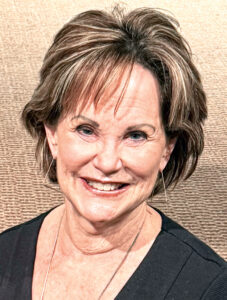
“We’ve always been a quarrelsome group,” she says of the Jewish people, “and I think that’s healthy and good for dialogue, so I’m not particularly distressed or feel that this division is stronger than other things we’ve had debates about.”
She says the High Holidays let congregants grapple with issues further.
“I’ve always tried to give sermons that are based on the Jewish values behind the different sides of arguments and let people make their own decisions,” Chessin says. “There are really good, grounded Jewish arguments on all sides of almost every issue. Putting those out there and allowing people to think about it that way is what my job is.
“I have personal opinions, but they don’t care what I think. What they care about is what Judaism thinks and says and teaches. So that has been my approach for 40 years. I’ve had people say to me, ‘Oh, I know you believe on the left,’ ‘I know you believe on the right.’ To me, that’s a sign of success.”
What Rabbi Karen Bodney-Halasz says she experiences at Temple Israel has less to do with divisiveness and more to do with big feelings.
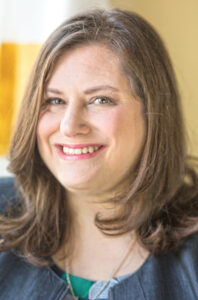
“I think the divisions have already been there that have been articulated,” she says. “People have very, very strong concerns about Israel and how it impacts them, how it impacts the Jewish community, how it impacts our relationship to other people, and whether or not we should be using our voices externally or internally.”
Of the Jewish community as a whole, she saw and heard a lot of arguments and disagreements at the beginning of the Israel-Hamas war and as it progressed.
“But at this point, people know where other people stand, and have decided they want to just avoid the topic. I don’t know that it will be the case next month.”
Building safe spaces
Federation CEO Cathy Gardner says that along with traditional support for the people of Israel, she has a responsibility to provide safe spaces for healthy conversations and learning among people in the Jewish community, and among Jews and people from other communities.
The safest conversation to have, she says, is “not who’s right or wrong, but what are your feelings about this situation? Because you can’t argue with feelings.”
She cites the Federation’s Upstander Project, facilitated by Jewish Community Relations Council Chair Bonnie Beaman Rice and JCRC Director Jeff Blumer, as where much of these conversations take place.
Dozens of people beyond the Jewish community participate in the Upstander Project.
“It’s people from any community that has experienced being an ‘other,'” Gardner says. “The purpose is to see each other as human beings and to create those relationships. We need each other today, and we need each other down the road. People need to see that we care for each other, even if we’re at opposite ends.”
After the Hamas massacre, the Upstanders met and talked in pairs about how they were feeling.
Now go and learn
Since Oct. 7, 2023, Gardner adds, the Federation has rolled out and continues to offer learning opportunities about Israel and its war with Hamas.
“I’ve heard from people in the Jewish community that they don’t know the history of the founding of the state of Israel,” she says. “People have come to me and say they don’t understand. We’ve tapped into our national Federation system.”
Another safe space for diverse viewpoints, she says, is JCRC’s Israel in Focus film series, screenings and discussions of documentaries about Oct. 7.
“Federation has done a great job of having programs making people aware of what’s going on,” Beth Jacob’s Rabbi Leibel Agar says. He’s had congregants volunteer with the IDF through Sar-El. “They came back and shared what it was like over there and how they’re still in contact with the friends they made from all over the world.”
Temple Israel’s Rabbi Karen Bodney-Halasz says her congregants have asked for more information about the Israel-Hamas war.
“They’re willing to learn more at this point, which is good. But I also think when they ask for it, what they really mean is that they want a place to express their conflicted feelings.”
That’s why Temple Israel Rabbi Emeritus David Sofian, who lives much of the year in Modi’in, Israel, will offer a four-week course this fall on rabbinic and biblical perspectives of the war in Gaza and war in general while he’s in Dayton for the High Holidays.
He’ll also lead a discussion about happenings in Israel — It’s Been Some Year, and I Don’t Mean That in a Good Way — in October as part of Temple Israel’s Brotherhood Ryterband Lecture Series.
“We’ll likely have people from all different perspectives joining that conversation,” Bodney-Halasz says.
It’s a tribute to the strength of Jewish lore, Temple Beth Or’s Rabbi Judy Chessin says, to give two opinions.
“You know, the Talmud gives one opinion and the other, and allows people to make their own choices,” she says.
“I think that’s part of the resilience of Judaism. The sages of the Talmud don’t shut down debate. They don’t shut down one side or the other.”
Related: Three ways to commemorate two years since Oct. 7 massacre
To read the complete October 2025 Dayton Jewish Observer, click here.


